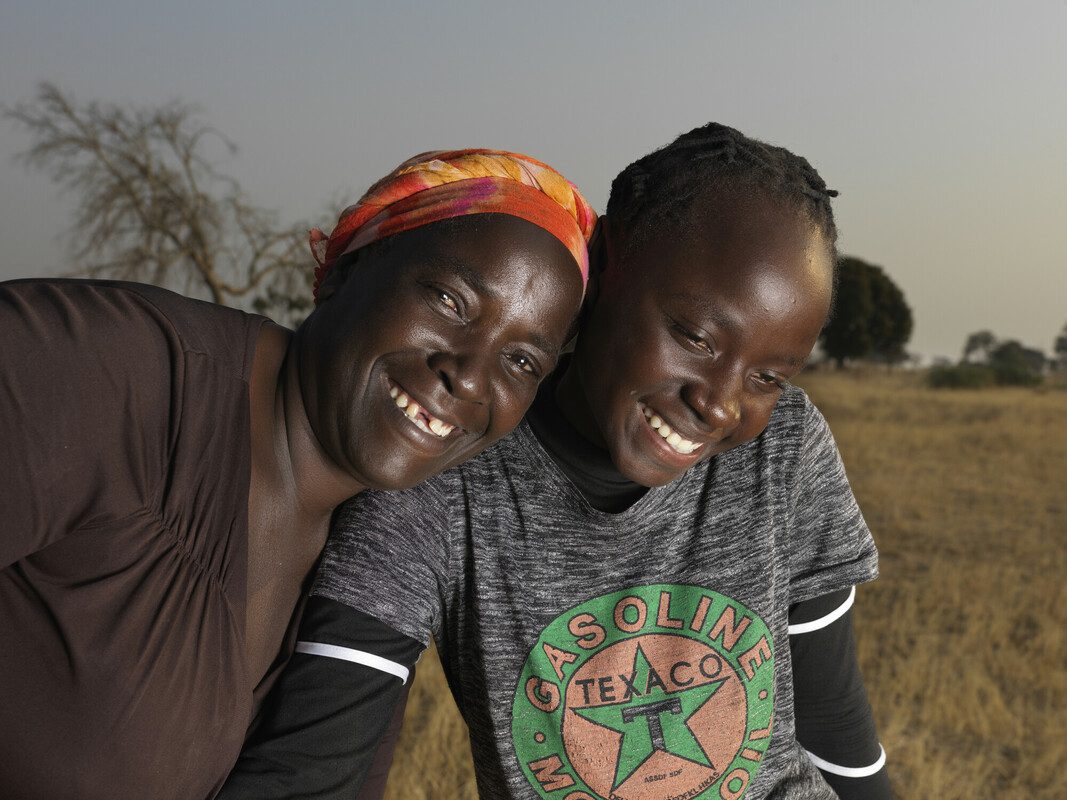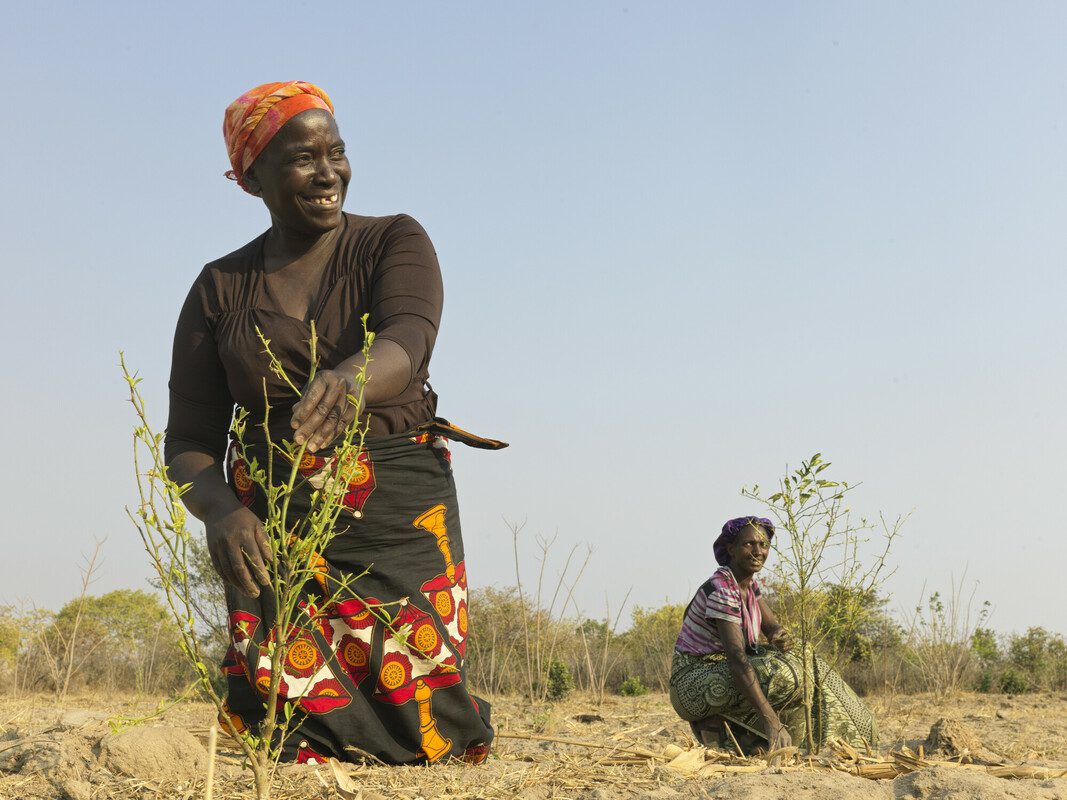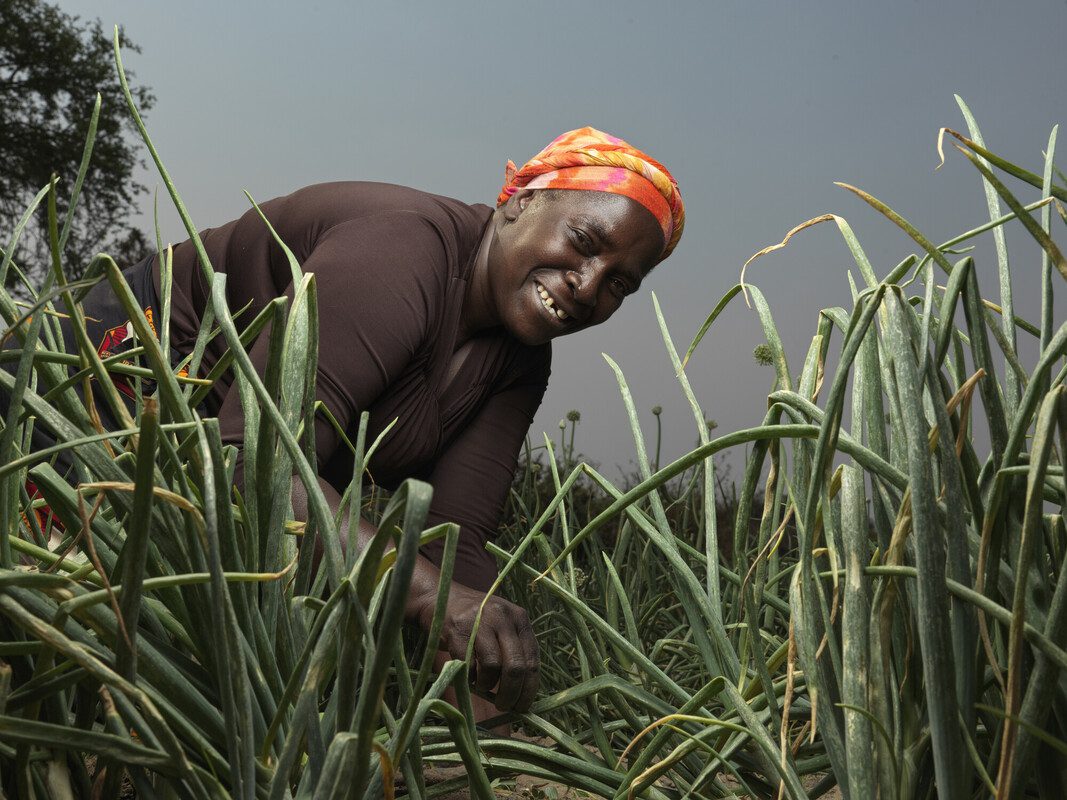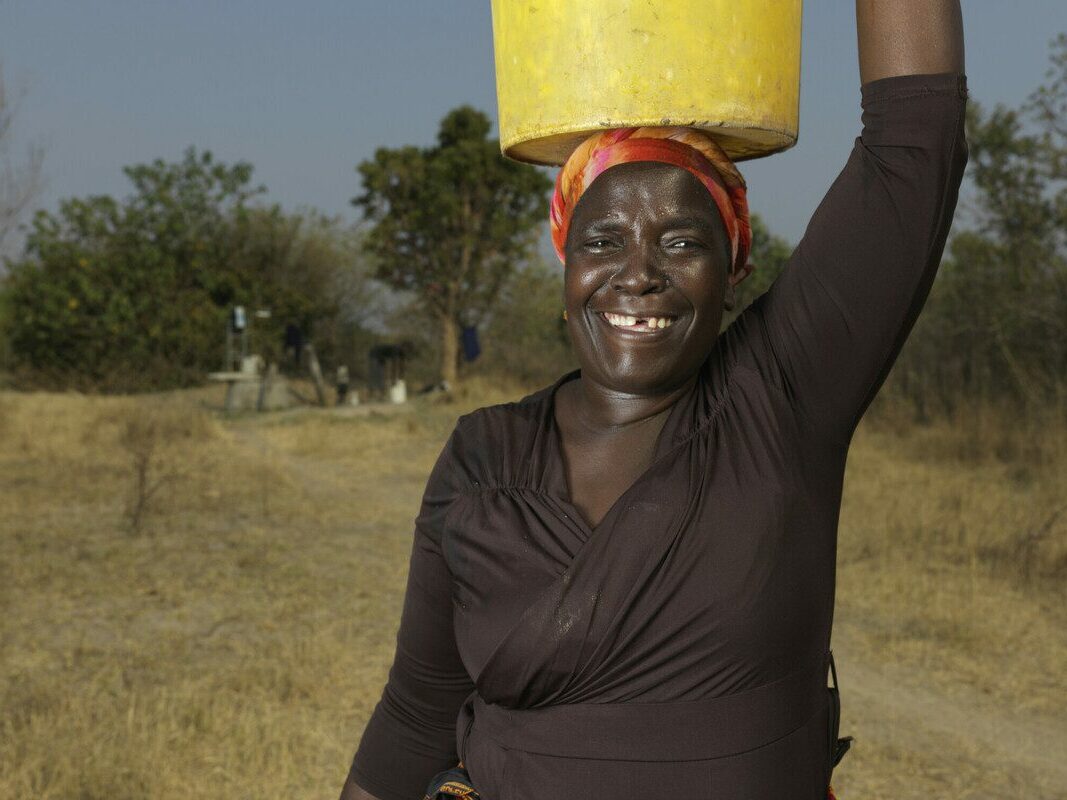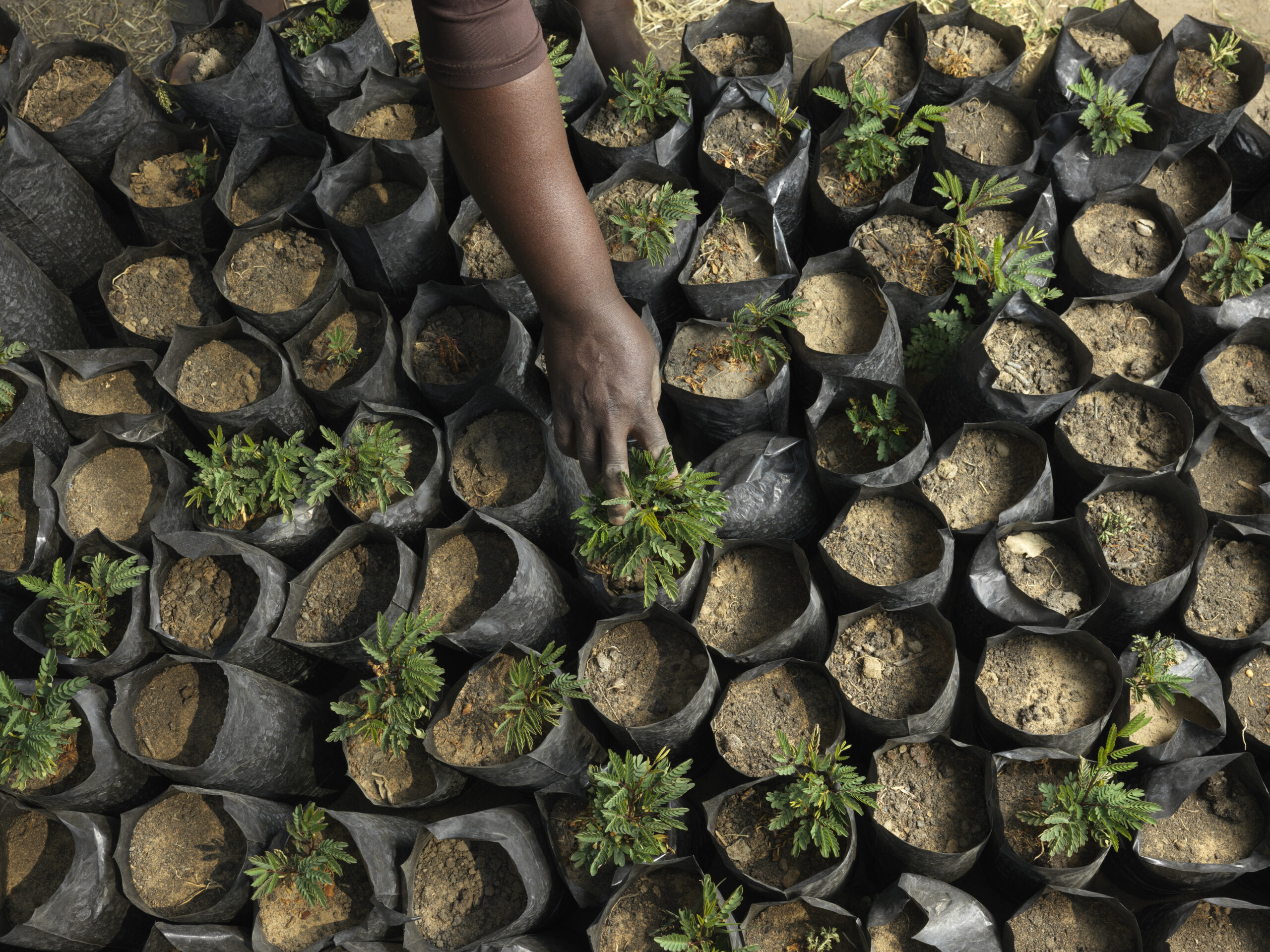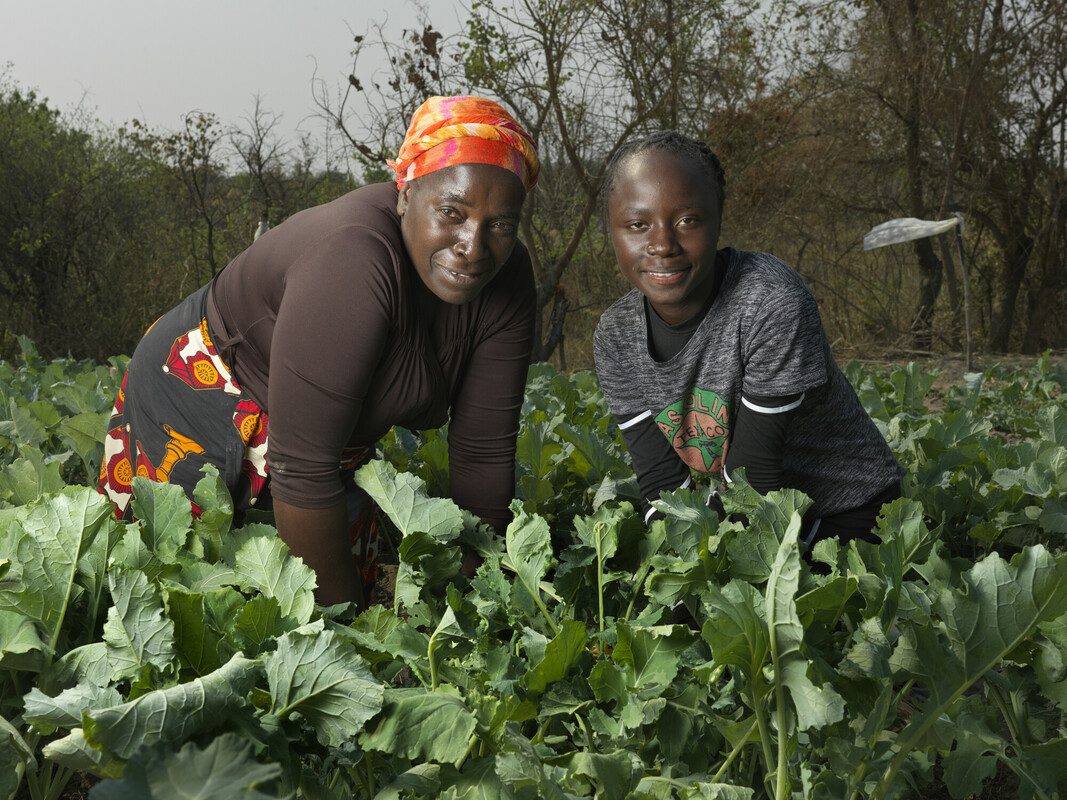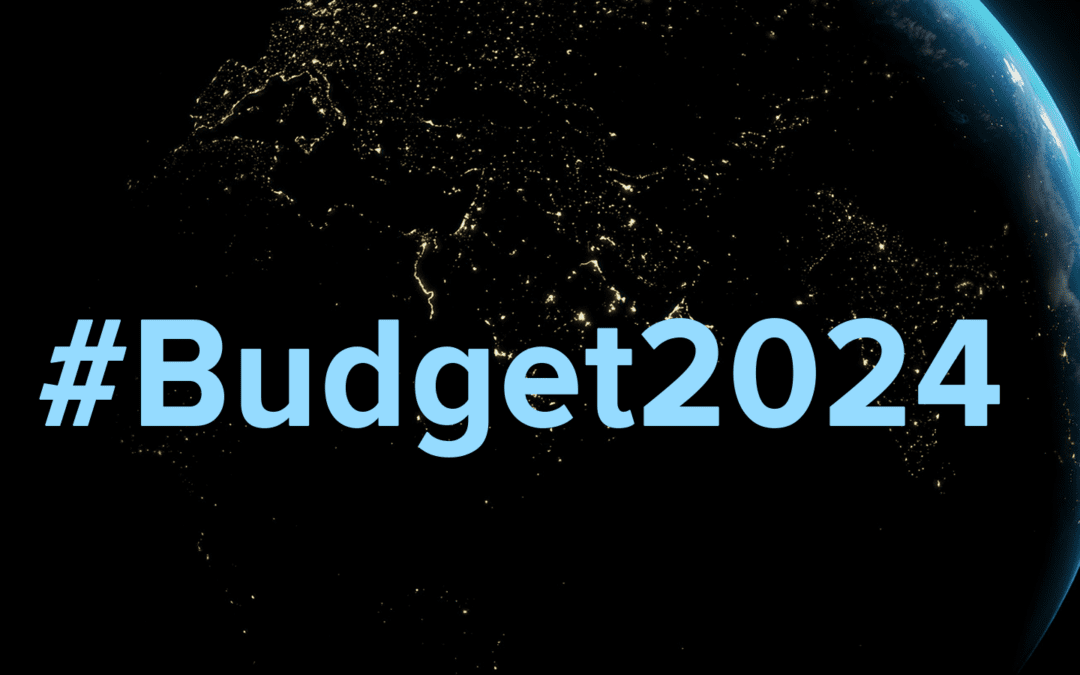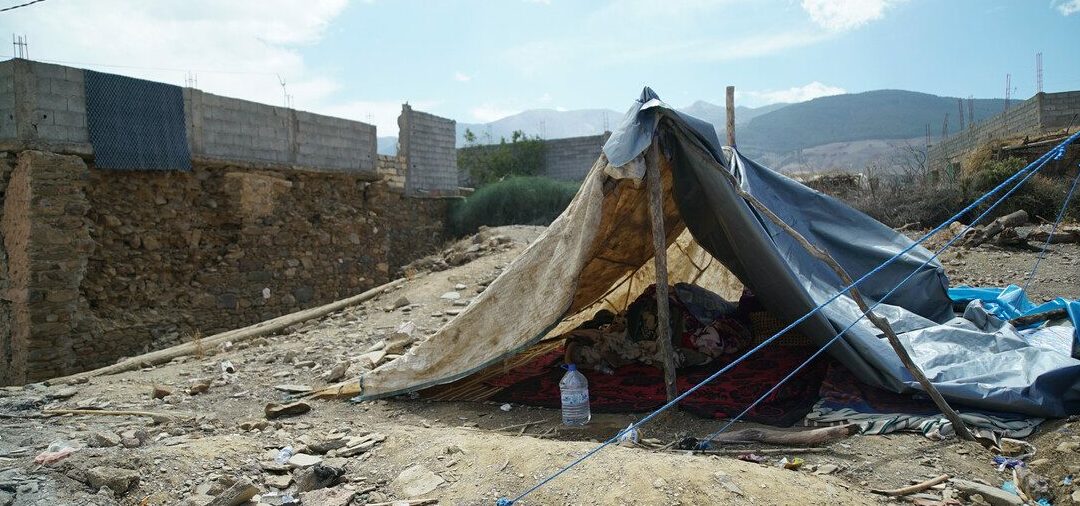Mable is a mother of five, living in a small village in the Southern Province of Zambia. She feeds her family and makes a living by gardening and farming.
The people in Mable’s village, like 60 per cent of Zambians, earn an income by farming. They primarily grow vegetables in their gardens along the river, which means their income is highly dependent on the weather.
But the community is feeling the bitter consequences of the climate crisis—extreme weather events are on the rise. High temperatures, little rainfall and long periods of drought threaten their ability to make and buy food.
The river is their lifeline, but it is much shallower than it seems at first glance—just two months without rain and it dries out completely. This makes it difficult for Mable and her family to have three meals a day and earn an income, as they cannot grow food without water.
“The money comes from what we harvest. If there is not enough water, the harvest is scarce and there is not enough income.”
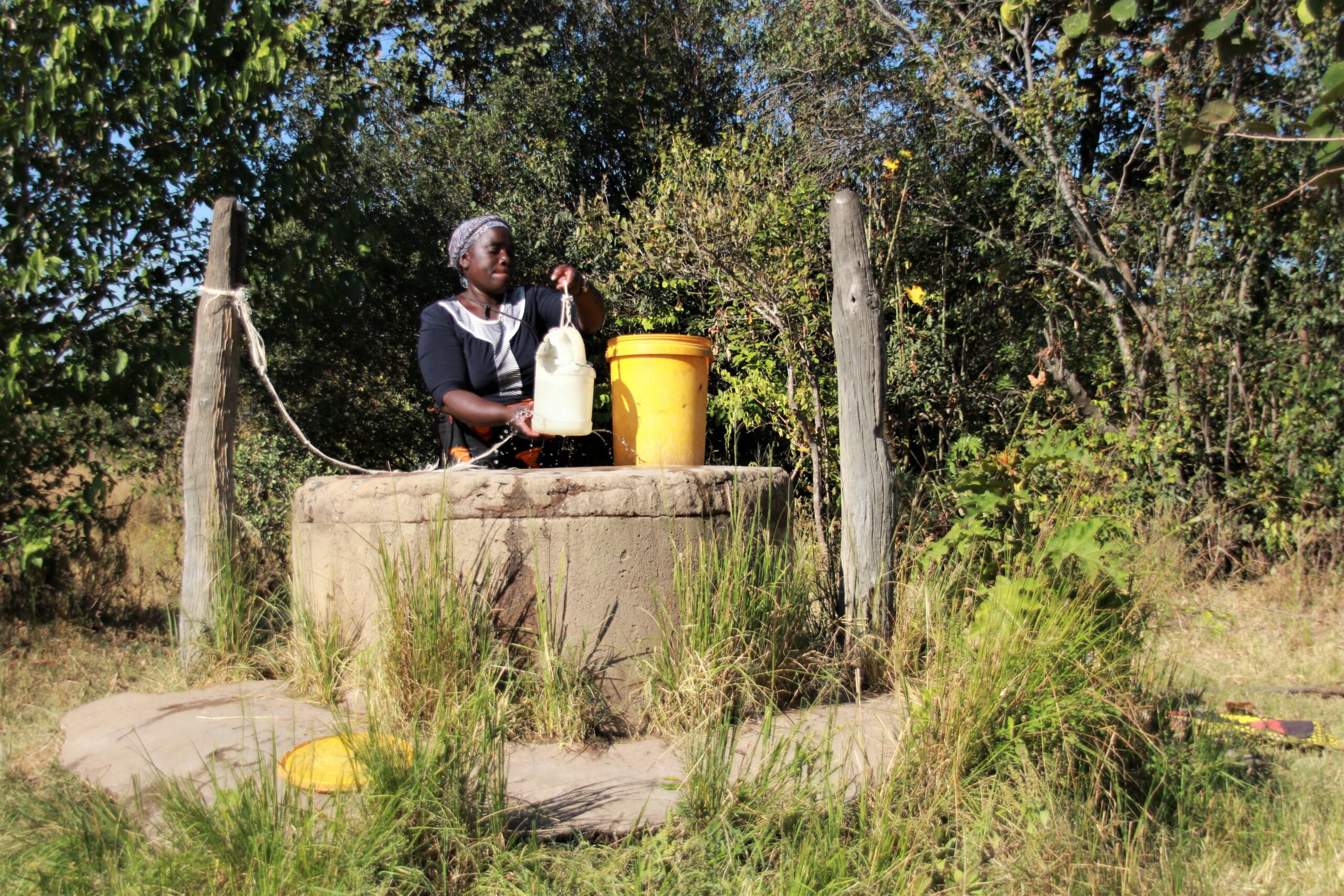

Mable getting water from the village well. © Denise Schneider/CARE
“I am worried that the well will run dry in only a few weeks,” she says.
When this happens, she and her neighbours must walk for hours every day to find clean drinking water.
But this isn’t just a problem in Mable’s village. Around the world, 2.2 billion people don’t have access to safe drinking water.
Women are often excluded from decisions regarding water allocation and management, despite them most often shouldering the responsibility for collecting and distributing water.
Women in Africa and Asia, on average, walk 6 km every day to get water, carrying up to 20 litres every time. In some areas, this can mean more than 15 hours per week are spent collecting water.
Those 15 hours could be used for something else—something that not only improves their lives and helps them realize their dreams, but also strengthens their families and communities.
Having that time back in their day means:
- more time to earn and save money;
- more time for school;
- and less time caring for family members who might get sick due to unsafe water.
If you had an extra 15 hours in your week, what would you do?
A series of photos of Mable and her granddaughter, Lumuno, working on their land. All photos: Peter Caton/CARE
Through a CARE-supported project, Mable has learned about improving soil and planting trees, as well as how to take care of her fields and livestock. The project is based on a holistic approach that makes the community more resilient to the consequences of the climate crisis, while providing farmers with long-term, sustainable solutions and additional sources of income.
All it takes is one woman to make change for future generations.
When one woman can access the resources and opportunities she deserves, she can pull not only herself, but others around her, out of poverty and crisis—breaking the cycle for future generations.


